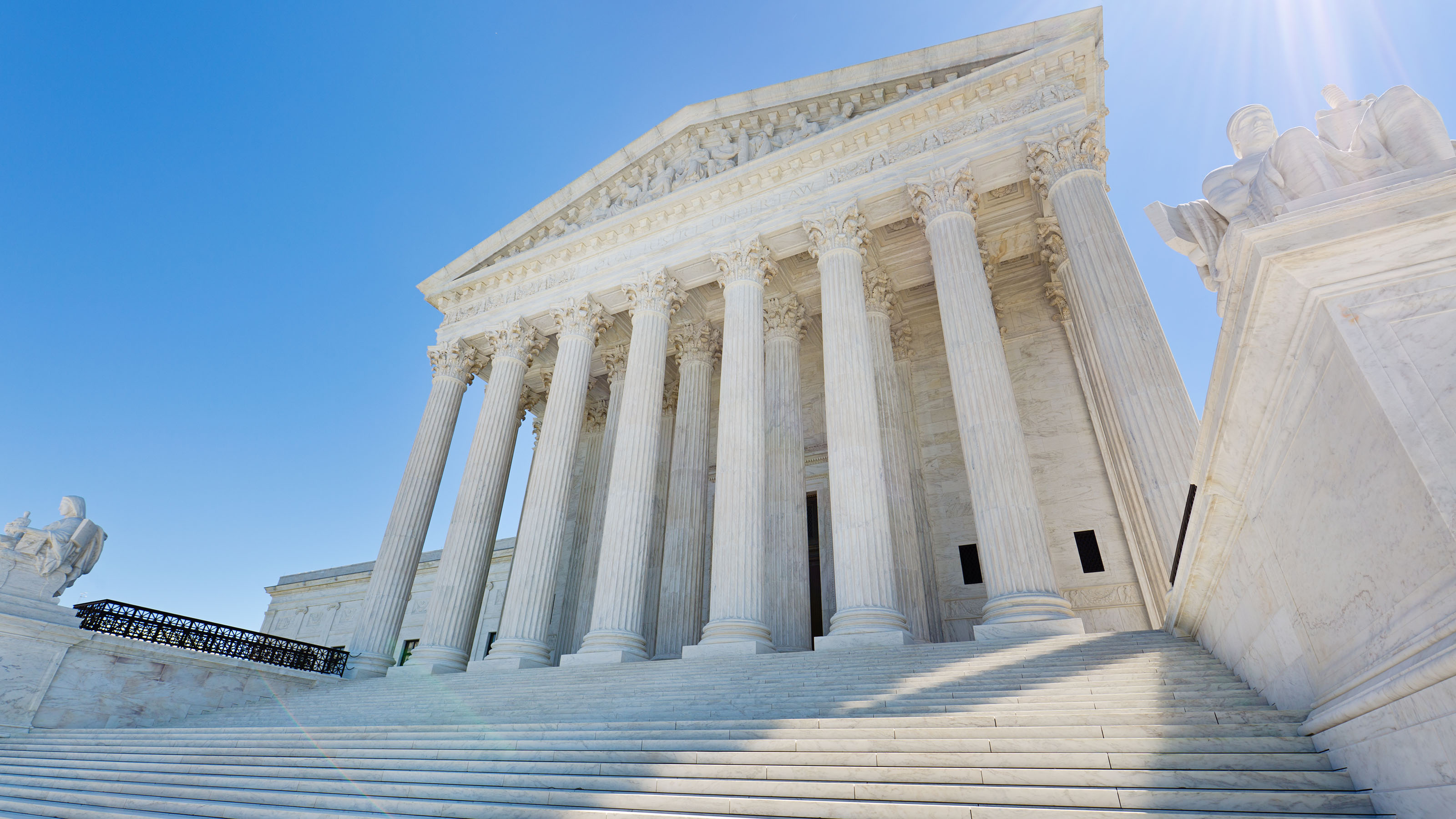Baucus Bill: Employer Mandate in Sheep's Clothing
A lot has been written about how Sen.
Profit and prosper with the best of Kiplinger's advice on investing, taxes, retirement, personal finance and much more. Delivered daily. Enter your email in the box and click Sign Me Up.
You are now subscribed
Your newsletter sign-up was successful
Want to add more newsletters?

Delivered daily
Kiplinger Today
Profit and prosper with the best of Kiplinger's advice on investing, taxes, retirement, personal finance and much more delivered daily. Smart money moves start here.

Sent five days a week
Kiplinger A Step Ahead
Get practical help to make better financial decisions in your everyday life, from spending to savings on top deals.

Delivered daily
Kiplinger Closing Bell
Get today's biggest financial and investing headlines delivered to your inbox every day the U.S. stock market is open.

Sent twice a week
Kiplinger Adviser Intel
Financial pros across the country share best practices and fresh tactics to preserve and grow your wealth.

Delivered weekly
Kiplinger Tax Tips
Trim your federal and state tax bills with practical tax-planning and tax-cutting strategies.

Sent twice a week
Kiplinger Retirement Tips
Your twice-a-week guide to planning and enjoying a financially secure and richly rewarding retirement

Sent bimonthly.
Kiplinger Adviser Angle
Insights for advisers, wealth managers and other financial professionals.

Sent twice a week
Kiplinger Investing Weekly
Your twice-a-week roundup of promising stocks, funds, companies and industries you should consider, ones you should avoid, and why.

Sent weekly for six weeks
Kiplinger Invest for Retirement
Your step-by-step six-part series on how to invest for retirement, from devising a successful strategy to exactly which investments to choose.
A lot has been written about how Sen. Max Baucus (D-MT) has taken a more pro-business approach in his health care bill than did any of the drafters of competing Senate and House measures. He's been praised by business groups for not proposing a "play or pay" mandate that imposes penalties on employers if they don't offer health coverage to their workers.
But is the praise deserved? Read the fine print of his bill, and you'll find a fee that looks a lot like a mandate.
Baucus insists his bill doesn't contain a mandate, and just in case you weren't sure, the description of the bill released by his office states that "an employer would not be required to offer health insurance coverage." But under Baucus's plan, if you own a company with more than 50 full-time employees and you don't have employee health coverage, you will have to pay part of the government's cost to help those uninsured folks in your company afford an insurance policy. Sound reasonable?
From just $107.88 $24.99 for Kiplinger Personal Finance
Become a smarter, better informed investor. Subscribe from just $107.88 $24.99, plus get up to 4 Special Issues

Sign up for Kiplinger’s Free Newsletters
Profit and prosper with the best of expert advice on investing, taxes, retirement, personal finance and more - straight to your e-mail.
Profit and prosper with the best of expert advice - straight to your e-mail.
Maybe. But how is that approach so different from the much-criticized employer mandate contained in the health care reform bill proposed by the Senate Health, Education, Labor and Pensions Committee? Under that measure, companies with payrolls exceeding $250,000 a year would pay a tax equal to $750 per worker if they do not offer basic coverage and pay 65% of worker premiums. So, for example, a 75-worker firm would pay $56,250.
Under Baucus' bill, companies with more than 50 full-time workers -- regardless of the size of their payroll -- would be charged a fee for each worker who receives federal tax credits to purchase his or her own insurance. Workers would be eligible for the credit if their income was below a certain amount and if their employer didn't offer coverage that they could afford. The fee would be based on the average cost of insurance sold through state-run exchanges set up under the bill. The levy could be as much as $400 per worker, so that 75-worker firm in the earlier example would have to pay up to $30,000 if every employee got the tax credit.
True, the two approaches are a bit different, and companies that failed to insure would be on the hook for less using Baucus' method than under the other Senate bill. Baucus would charge a fee only for each individual worker who claimed the tax credit. So it's possible you could have an uninsured workforce at a company where some employees were more tax-savvy than others. Or a business might have a highly paid workforce where no one would qualify for the affordability credit. So there's no explicit mandate. But the implied message is still the same: Insure your workers who would have trouble paying the full cost of health insurance or pay the government to pick up the slack.
Profit and prosper with the best of Kiplinger's advice on investing, taxes, retirement, personal finance and much more. Delivered daily. Enter your email in the box and click Sign Me Up.
-
 How Much It Costs to Host a Super Bowl Party in 2026
How Much It Costs to Host a Super Bowl Party in 2026Hosting a Super Bowl party in 2026 could cost you. Here's a breakdown of food, drink and entertainment costs — plus ways to save.
-
 3 Reasons to Use a 5-Year CD As You Approach Retirement
3 Reasons to Use a 5-Year CD As You Approach RetirementA five-year CD can help you reach other milestones as you approach retirement.
-
 Your Adult Kids Are Doing Fine. Is It Time To Spend Some of Their Inheritance?
Your Adult Kids Are Doing Fine. Is It Time To Spend Some of Their Inheritance?If your kids are successful, do they need an inheritance? Ask yourself these four questions before passing down another dollar.
-
 Is a New $25,000 Health Care Tax Deduction Coming in 2026?
Is a New $25,000 Health Care Tax Deduction Coming in 2026?Tax Policy A proposal from GOP Sen. Josh Hawley adds to the chatter about health care affordability.
-
 Money for Your Kids? Three Ways Trump's ‘Big Beautiful Bill’ Impacts Your Child's Finances
Money for Your Kids? Three Ways Trump's ‘Big Beautiful Bill’ Impacts Your Child's FinancesTax Tips The Trump tax bill could help your child with future education and homebuying costs. Here’s how.
-
 Key 2025 Tax Changes for Parents in Trump's Megabill
Key 2025 Tax Changes for Parents in Trump's MegabillTax Changes Are you a parent? The so-called ‘One Big Beautiful Bill’ (OBBB) impacts several key tax incentives that can affect your family this year and beyond.
-
 Will EVs Drive the Vote in Election 2024 Swing States?
Will EVs Drive the Vote in Election 2024 Swing States?Tax Credits Electric vehicle tax credits have somehow become controversial. So car buyer attitudes in swing states might make a difference.
-
 How Four Recent Supreme Court Rulings Impact Your Money
How Four Recent Supreme Court Rulings Impact Your MoneySupreme Court Some U.S. Supreme Court decisions could affect your finances. Here’s what you need to know.
-
 Are Student Loans Being Forgiven or Not?
Are Student Loans Being Forgiven or Not?Student Loans The House and Senate voted to repeal President Biden’s student loan forgiveness plan, but does it even matter?
-
 Etsy, eBay, PayPal Want IRS 1099-K Relief for Online Sellers
Etsy, eBay, PayPal Want IRS 1099-K Relief for Online SellersIncome Tax Companies like eBay, Etsy, and PayPal want Congress to raise the $600 reporting threshold for IRS Form 1099-K to give relief to millions of sellers who use their sites.
-
 Student Loan Forgiveness Blocked For Now Due to Court Rulings
Student Loan Forgiveness Blocked For Now Due to Court RulingsBiden's student loan debt forgiveness program is on hold until the U.S. Supreme Court weighs in.